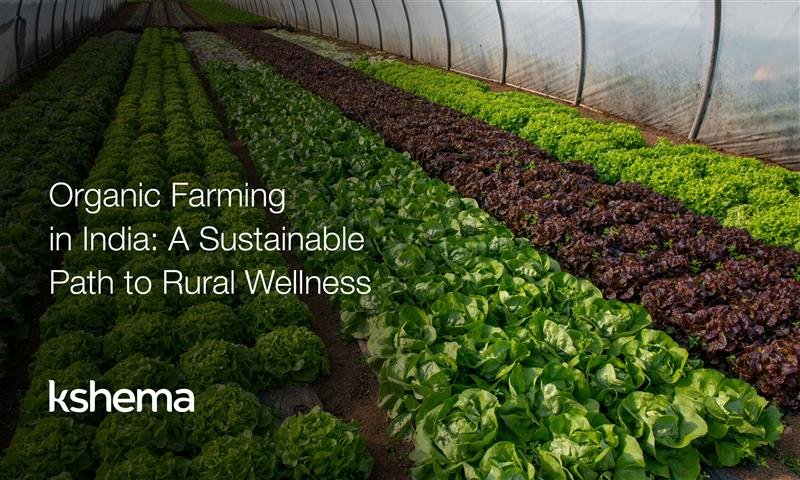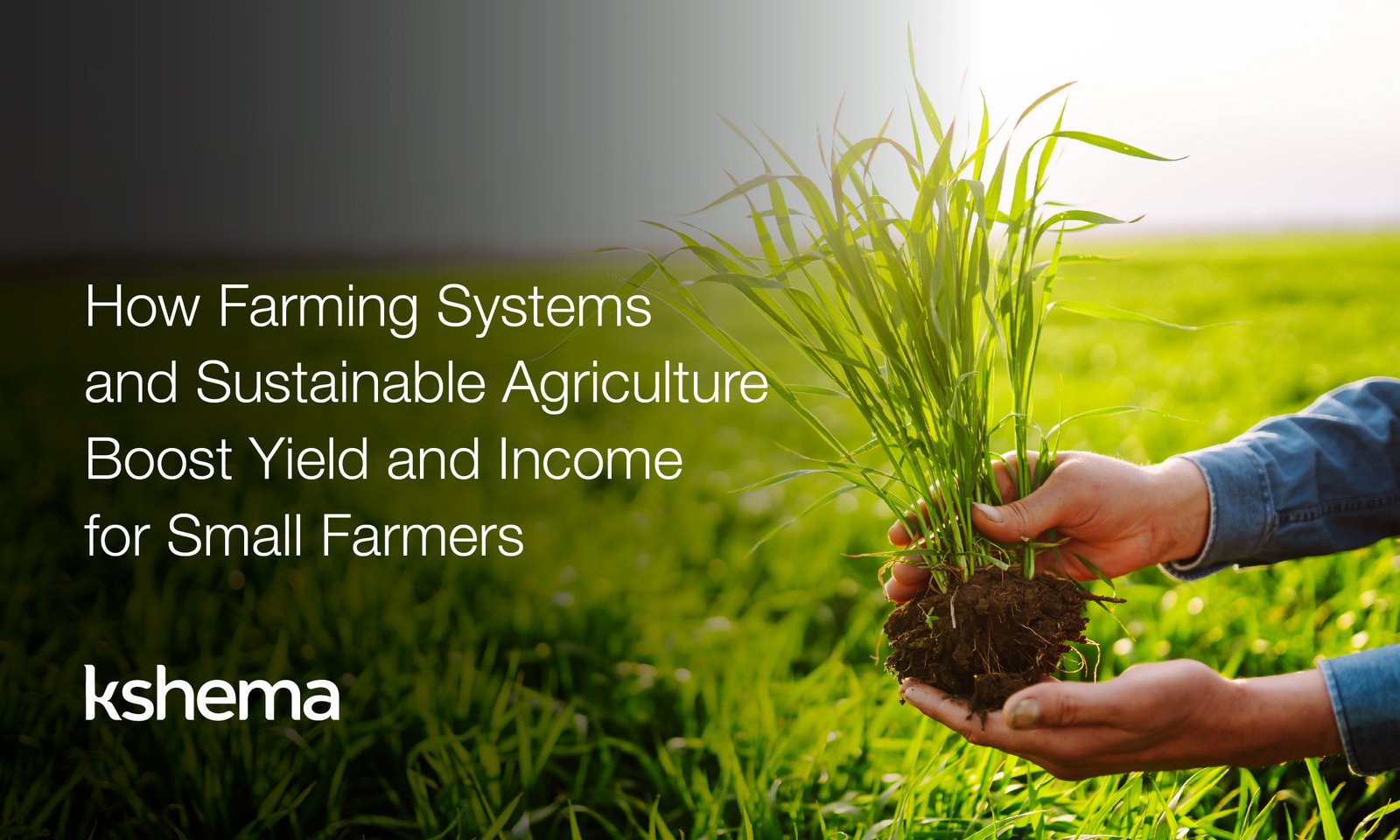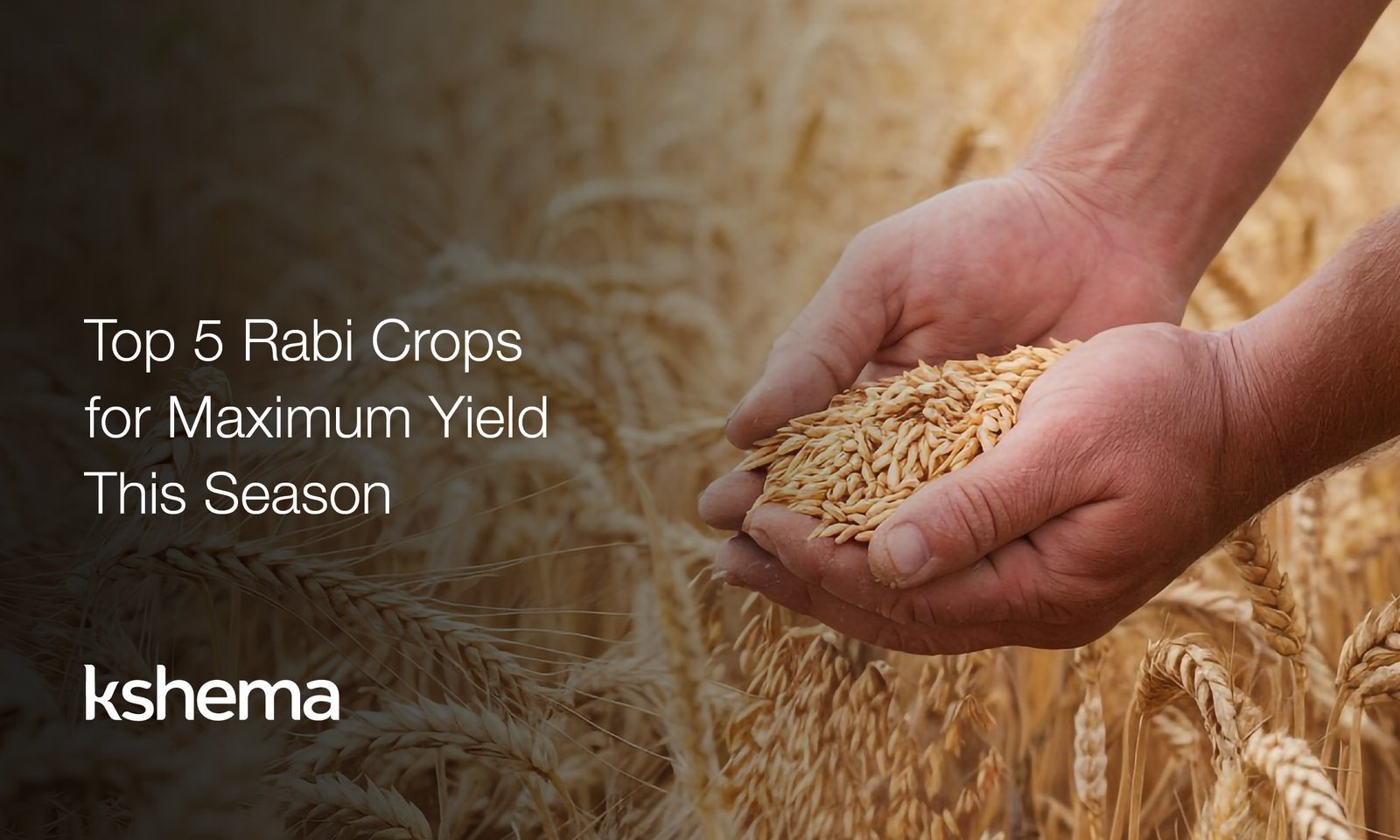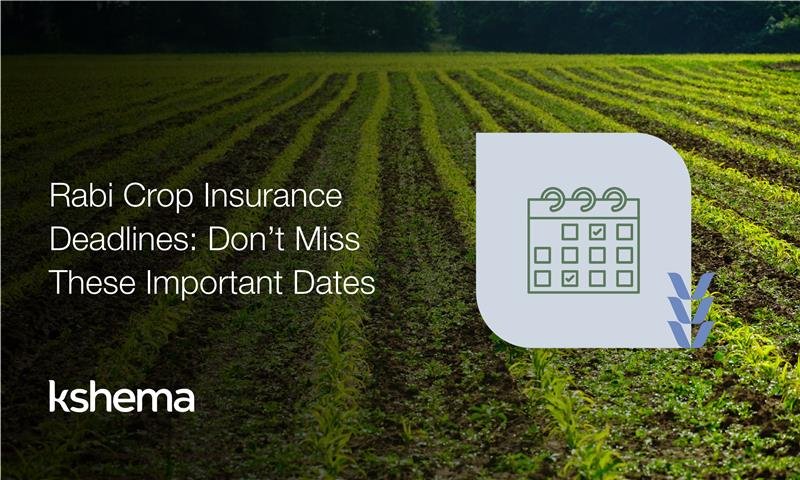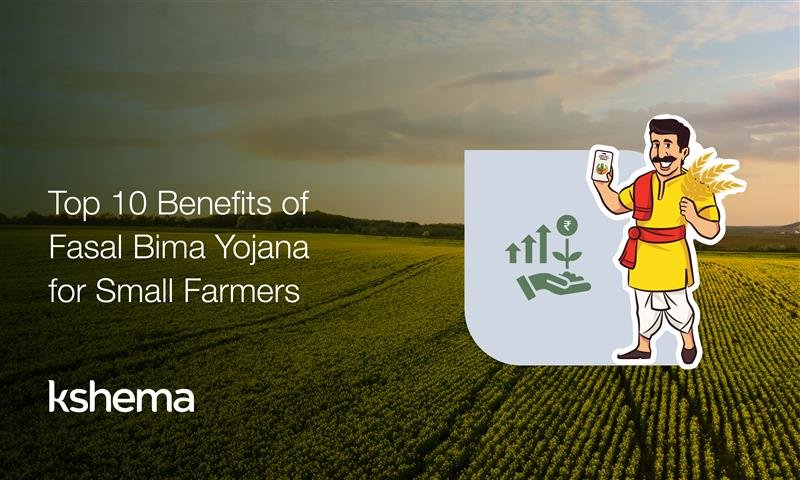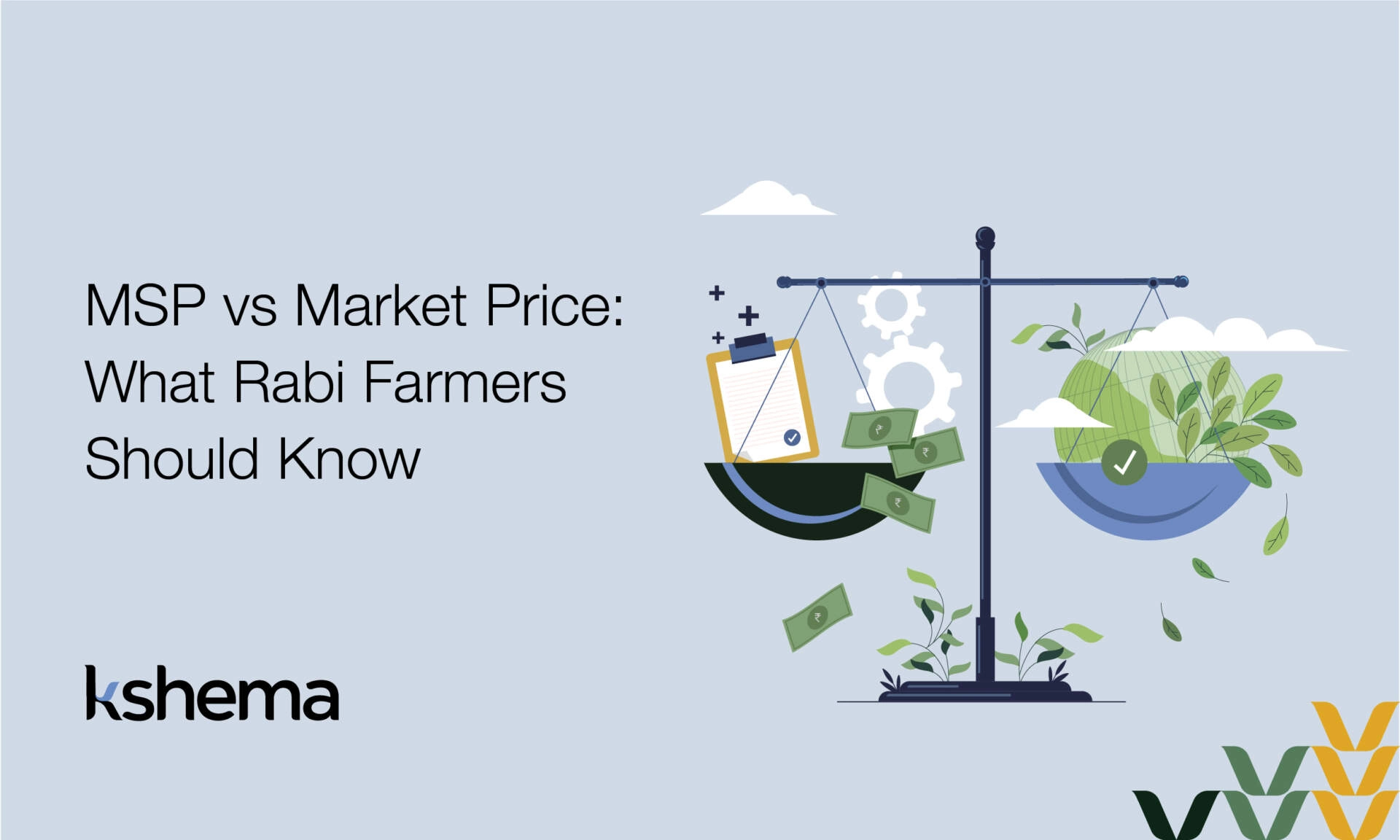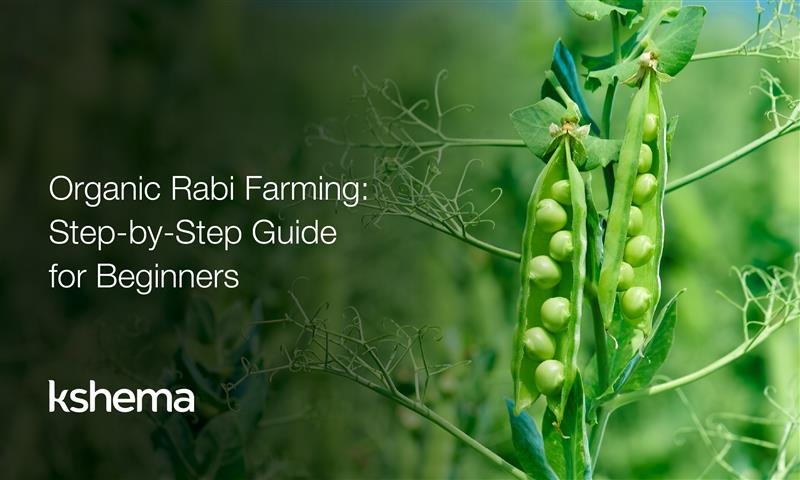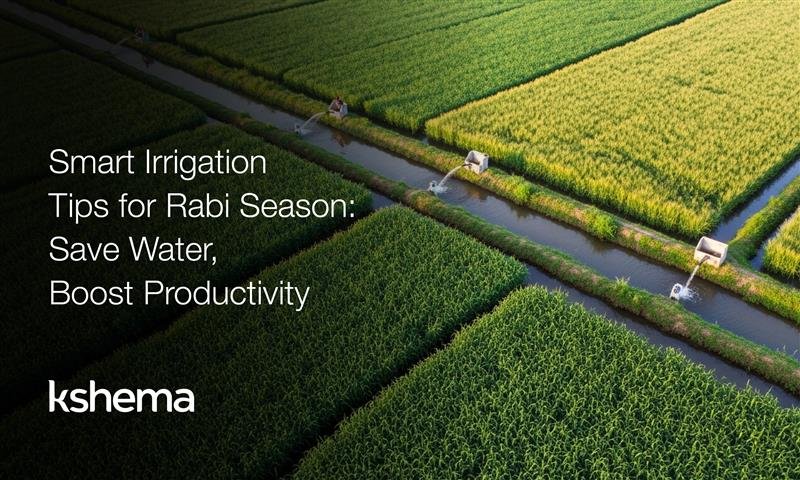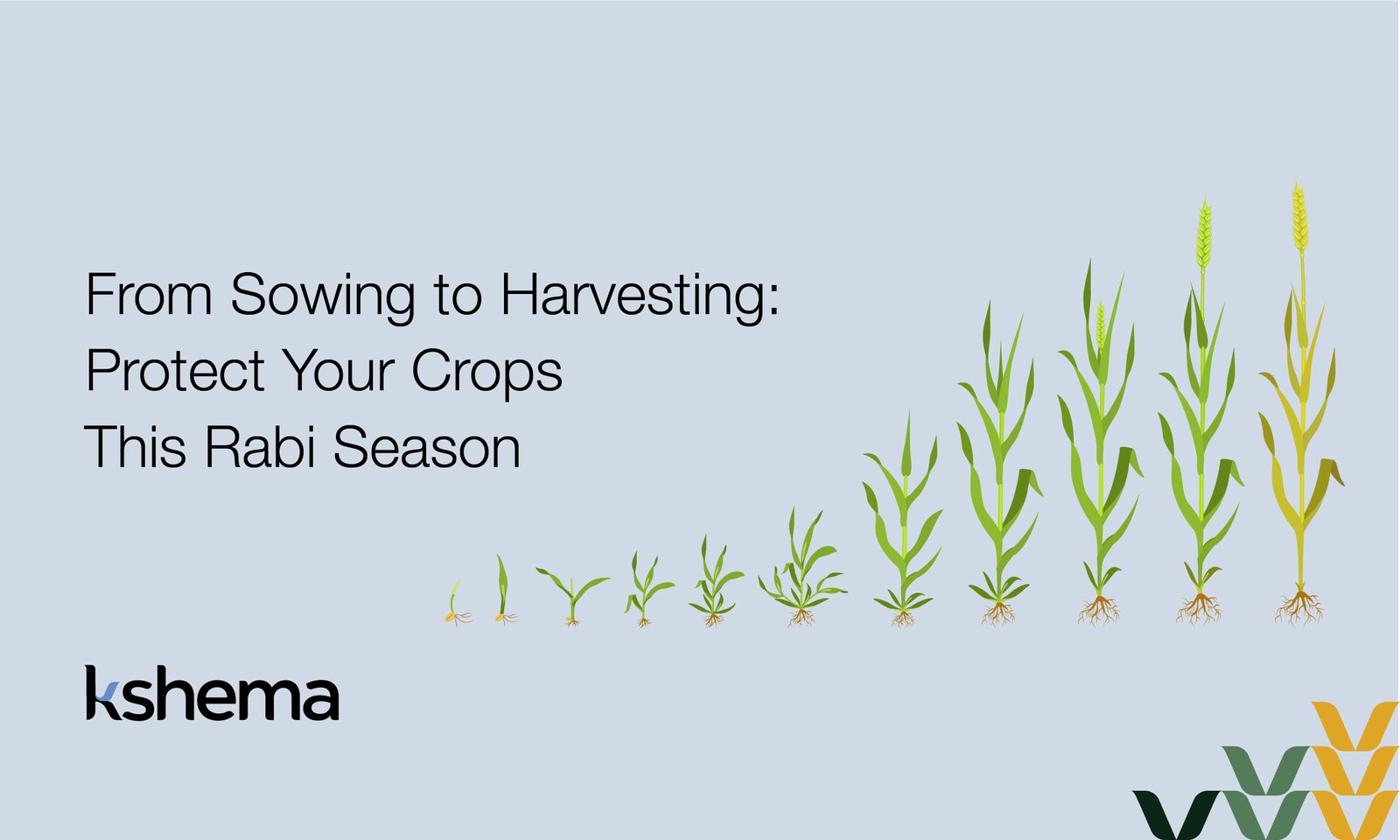How Organic Farming in India Is Transforming Agriculture and Empowering Rural Communities
In recent years, organic farming in India has emerged as more than just a trend. It is a transformative movement reshaping the agricultural landscape and empowering rural communities. As the country grapples with the environmental and health consequences of conventional farming, organic methods offer sustainable and holistic alternatives. This blog explores how organic farming is not only revitalising soil and ecosystems but also fostering rural wellness through economic resilience, community empowerment, and healthier lifestyles.
Switch to Organic. Secure Your Soil. Discover how organic farming in India boosts income, health, and resilience.
👉 Download the kshema app to explore crop protection plans
The Rise of Organic Farming in India
India’s agricultural heritage is deeply rooted in natural farming practices. Before the Green Revolution introduced chemical-intensive methods which played a significant part in making India a food-secure nation, Indian farmers relied on organic inputs, crop rotation, and biodiversity to maintain soil fertility and productivity. Today, as awareness is growing around the adverse effects of synthetic fertilisers and pesticides, there is a renewed interest in organic farming in India.
According to recent government data, India has over 2.7 million organic farmers—the highest in the world. States like Sikkim, which became the first fully organic state in 2016, are leading the way, demonstrating that large-scale adoption of sustainable agricultural practices is not only feasible but also beneficial.
What Makes Organic Farming Sustainable
At its core, organic farming is about working with nature. It avoids synthetic chemicals, promotes biodiversity, and focuses on soil health through composting, green manuring, and crop rotation. These sustainable agricultural practices help maintain ecological balance and reduce pollution, making farming more resilient to climate change.
Organic farming also supports water conservation. By improving soil structure and organic matter, it enhances water retention, reducing the need for irrigation. This is particularly crucial in drought-prone regions of India, where water scarcity is a growing concern.
Economic Empowerment Through Organic Farming
One of the most compelling aspects of organic farming in India is its potential to uplift rural economies. Organic produce often fetches premium prices in domestic and international markets, offering farmers better income opportunities. With proper certification and market linkages, small and marginal farmers can access niche markets and build sustainable livelihoods.
Government initiatives like the Paramparagat Krishi Vikas Yojana (PKVY) and the National Programme for Organic Production (NPOP) are helping farmers transition to organic methods by providing financial support, training, and certification assistance. These programmes are instrumental in scaling sustainable agricultural practices across the country.
Moreover, organic farming reduces dependency on costly chemical inputs, lowering production costs. This is especially beneficial for farmers who are economically vulnerable as they may have taken debt to purchase fertilisers and pesticides.
Health and Wellness Benefits
The health benefits of organic farming extend beyond the farm. Organic produce is free from harmful residues of synthetic pesticides and fertilisers, making it safer for consumers. It’s also richer in nutrients, thanks to healthier soil and natural growth processes.
For rural communities, the shift to organic farming means reduced exposure to toxic chemicals, which have been linked to respiratory issues, skin diseases, and even cancer. By embracing organic farming, farmers in India are not only protecting their own health but also contributing to the wellness of their families and communities.
Community and Cultural Revival
Organic farming often involves the utilisation of traditional knowledge systems and community-based practices. In many parts of India, farmers are reviving age-old techniques such as Panchagavya (a mixture of cow-based products used as fertiliser) and Jeevamrut (a microbial culture for soil enrichment). These methods are deeply intertwined with local culture and spirituality, fostering a sense of pride and identity.
Community-led organic farming initiatives also encourage collaboration and knowledge sharing. Farmer producer organisations (FPOs), cooperatives, and self-help groups are playing a vital role in training, marketing, and advocacy. This collective approach strengthens social bonds and builds resilience against economic and environmental challenges.
Policy Support and Institutional Backing
The Indian government has taken significant steps to promote organic farming in the country through policy frameworks and institutional support. In addition to PKVY and NPOP, the Mission Organic Value Chain Development for Northeastern Region (MOVCDNER) aims to develop certified organic production in a value chain mode. These schemes not only provide financial incentives but also facilitate infrastructure development, capacity building, and market access.
Furthermore, the Food Safety and Standards Authority of India (FSSAI) has introduced the Jaivik Bharat logo to help consumers identify authentic organic products. This regulatory clarity is crucial for building trust and expanding the organic market.
Growing Consumer Awareness
Urban consumers are increasingly seeking healthier and environmentally friendly food options, driving demand for organic produce. This shift in consumer behaviour is creating new opportunities for farmers engaged in organic farming in India. E-commerce platforms, organic food stores, and farm-to-table models are bridging the gap between rural producers and urban buyers.
As awareness grows, consumers are also becoming more conscious of the impact of their food choices on the environment and rural livelihoods. This evolving mindset is helping to mainstream sustainable agricultural practices, making organic farming not just a niche but a viable alternative to conventional agriculture.


